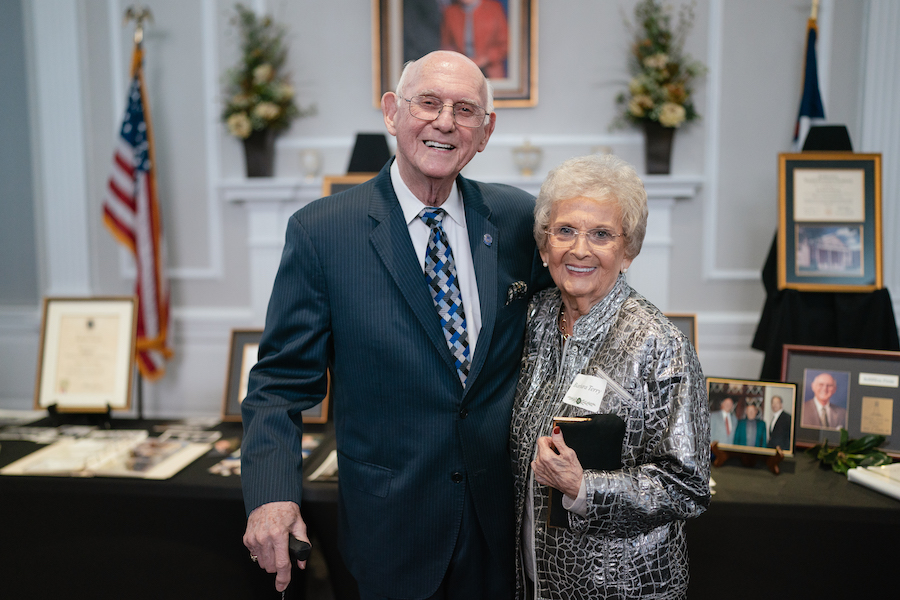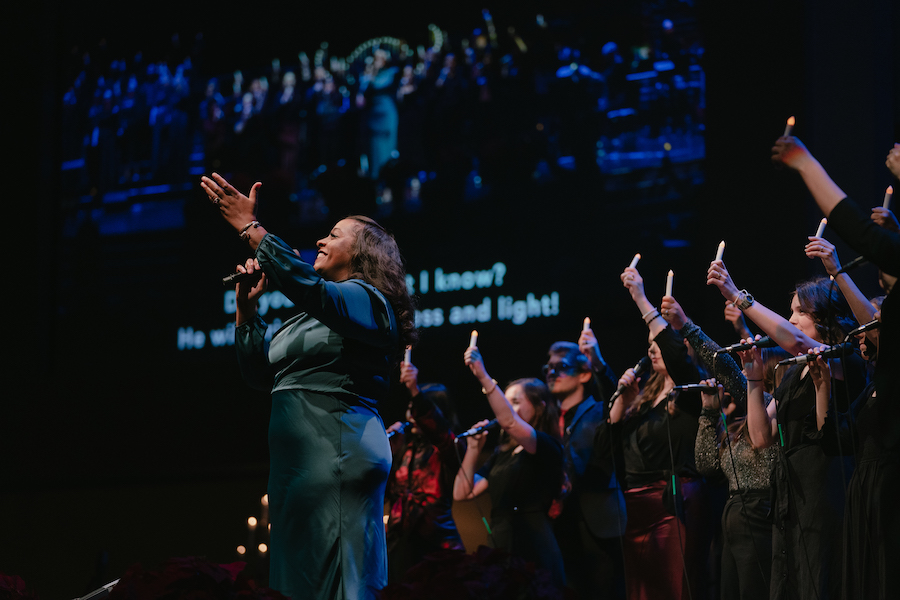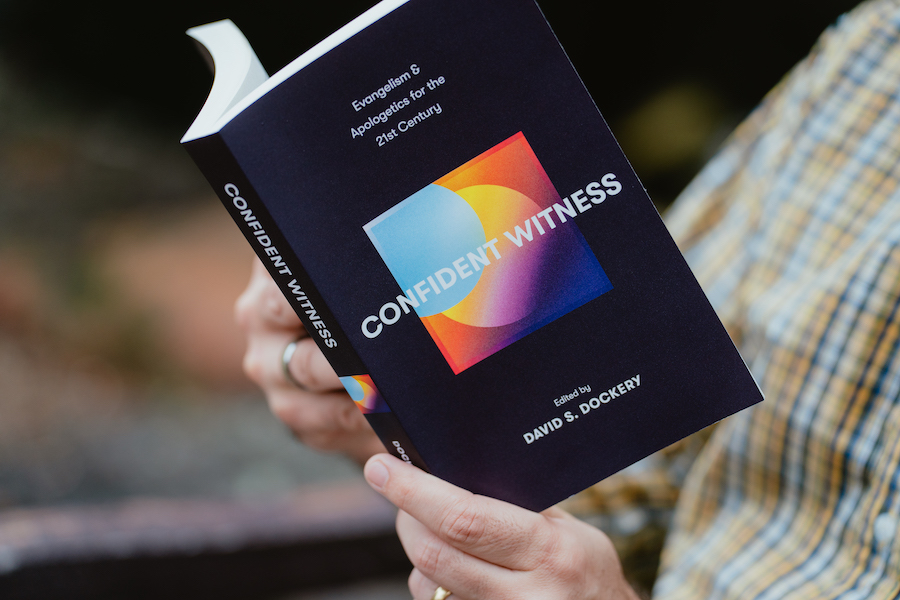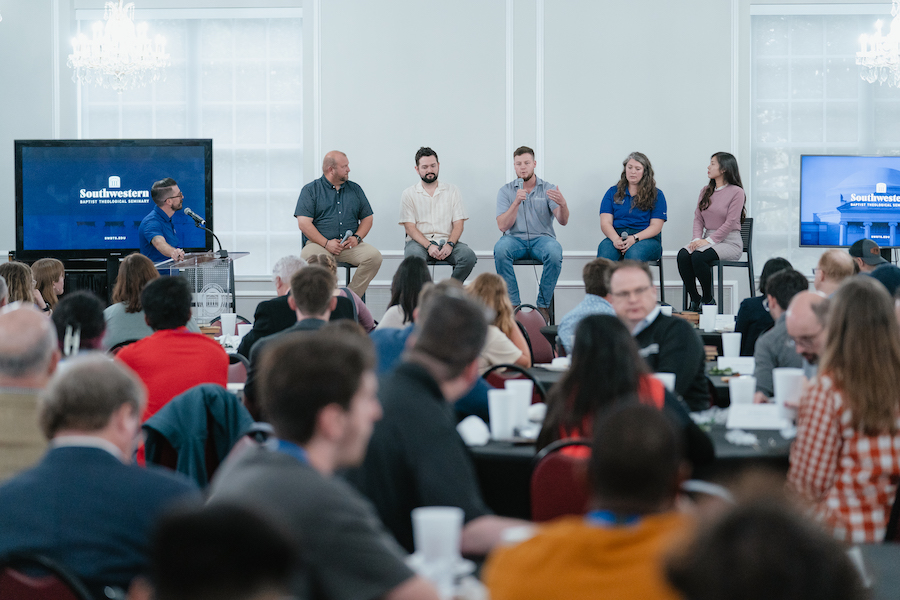Evangelism remains ‘everyday’ effort for Southwestern students, faculty despite COVID limitations
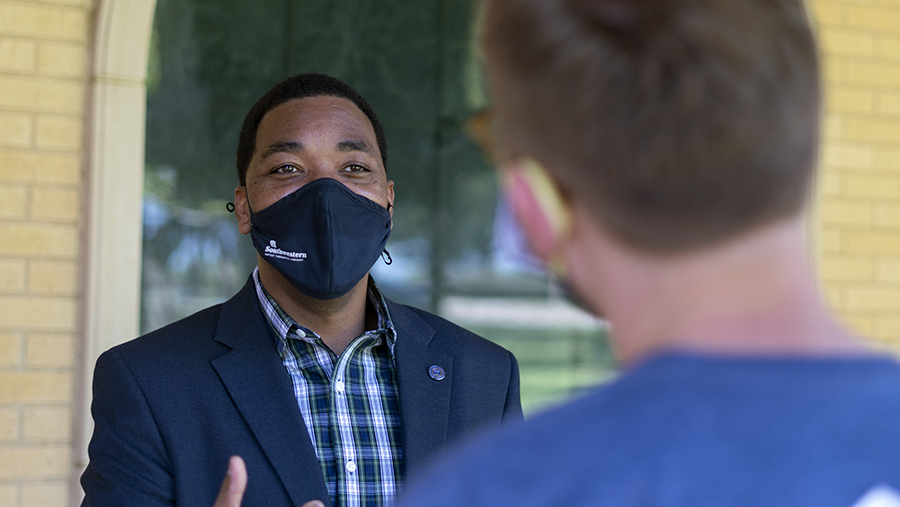
Historically, Southwestern Baptist Theological Seminary has had a formal door-to-door evangelism program titled “Everyday Evangelism” wherein professors and students venture daily into the neighborhoods around the seminary in order to share the Gospel with local residents. Due to COVID-19 restrictions, these efforts have been put on pause.
Despite this, however, Southwestern Seminary students and faculty have continued to make evangelism an “everyday” effort, utilizing preexisting relationships, technology, and even, in some cases, socially distanced door-to-door efforts to continue proclaiming the Gospel to the lost. And as these Southwesterners have remained faithful in sharing the Gospel, God has been faithful in saving lost souls.
John D. Massey, dean of the Roy J. Fish School of Evangelism and Missions, says, “Even though ‘Everyday Evangelism’ has been on pause due to COVID-19, our students are reporting that their Gospel witnessing efforts have grown exponentially with family, friends, neighbors, and co-workers. The design of ‘Everyday Evangelism’ is to create an awareness and ability in students to share the Gospel as they encounter people throughout their day and week. It is times like these when we cannot go door to door that we see that the training actually works in the everyday life of the students.”
Carl J. Bradford, assistant professor of evangelism, encourages his students that the pandemic should not cause them to cease evangelistic efforts, but should rather be utilized for the opportunities it presents.
“It’s important for us not to pause, because we have opportunities now that we’re not going to have later on,” Bradford says, noting that the pandemic has caused many nonbelievers to ask questions about spiritual matters. “God has given us this opportunity, and we need to strike while the iron is hot.”
The primary evangelistic method during COVID that Bradford promotes to his students is to “circle the wagon” on individuals whom they have evangelized in the past.
“There are family members, there are friends that we have witnessed to, and they were not open to the Gospel at the time, for whatever reason. But now, during this time of pandemic, they have become open—because of a crisis,” Bradford says. “Many people want to know about the hope that people have throughout this crisis—why they are not shaken by this pandemic—and so this is a great opportunity to share that hope; to share the Gospel.”
Bradford personally “circled the wagon” on his grandmother, with whom he had shared the Gospel in the past but who had not responded. This August, Bradford renewed his efforts, albeit while wearing a facemask, and in response, his 86-year-old grandmother repented of her sins and received Jesus as her Lord and Savior.
In a celebratory post on Twitter, Bradford said, “Won’t He do it!”
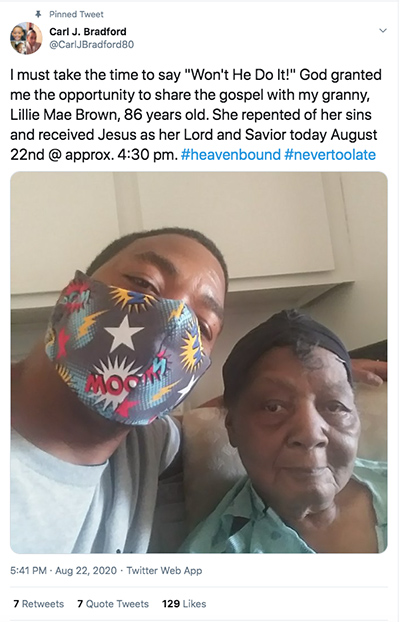
Other evangelistic practices during COVID include sharing the Gospel through social media channels, scheduling meetings on Zoom, utilizing online platforms like “Need Him Global” and “Global Media Outreach,” extending invitations during preaching opportunities, and sharing the Gospel door-to-door while wearing a facemask and being careful to remain socially distanced.
“Evangelism is still going forward,” Bradford says. “I’ve seen that in my own life, and I’ve also seen that in the lives of the students who are coming back. We do prayer requests every class, and these are the same stories that they’re talking about—individuals or friends that they are witnessing to and people that they are meeting over social media.”
Matt Queen, L.R. Scarborough Chair of Evangelism, similarly hears testimonies often from both current and former students who are still sharing the Gospel amidst the pandemic. One student who comes from a Muslim background has been sharing the Gospel via Zoom with Muslims in north Africa, and after one of these meetings recently, he texted Queen that “many people accepted our Lord.”
Another student recently emailed Queen, explaining that he took what he is learning and reading about in class and was able to lead a young man to the Lord, who is now planning to be baptized.
Yet another student recently shared with Queen that he joined a bowling league in order to share the Gospel with his teammates, which he has done. The student concluded his message, “It’s what I learned at Southwestern that’s prompted me to do evangelism through this bowling league.”
“So I’m still getting stories frequently,” Queen says, “which tells me that evangelism at Southwestern is not just something that is dependent upon this structure [that is, the formal door-to-door efforts], but it’s actually something that is still going on outside of the structure.”
Queen notes that he misses the opportunity to go out with students into nearby neighborhoods, and he stresses that these formal efforts will resume as soon as COVID subsides. “But the good news,” he says, “is that evangelism now is really the outflow, because when we have students who graduate, who have done ‘Everyday Evangelism,’ they’re still doing evangelism. And so, we expect that of our graduates. We observe that in our graduates. And now we have that expectation and we’re observing it in our current students.”
